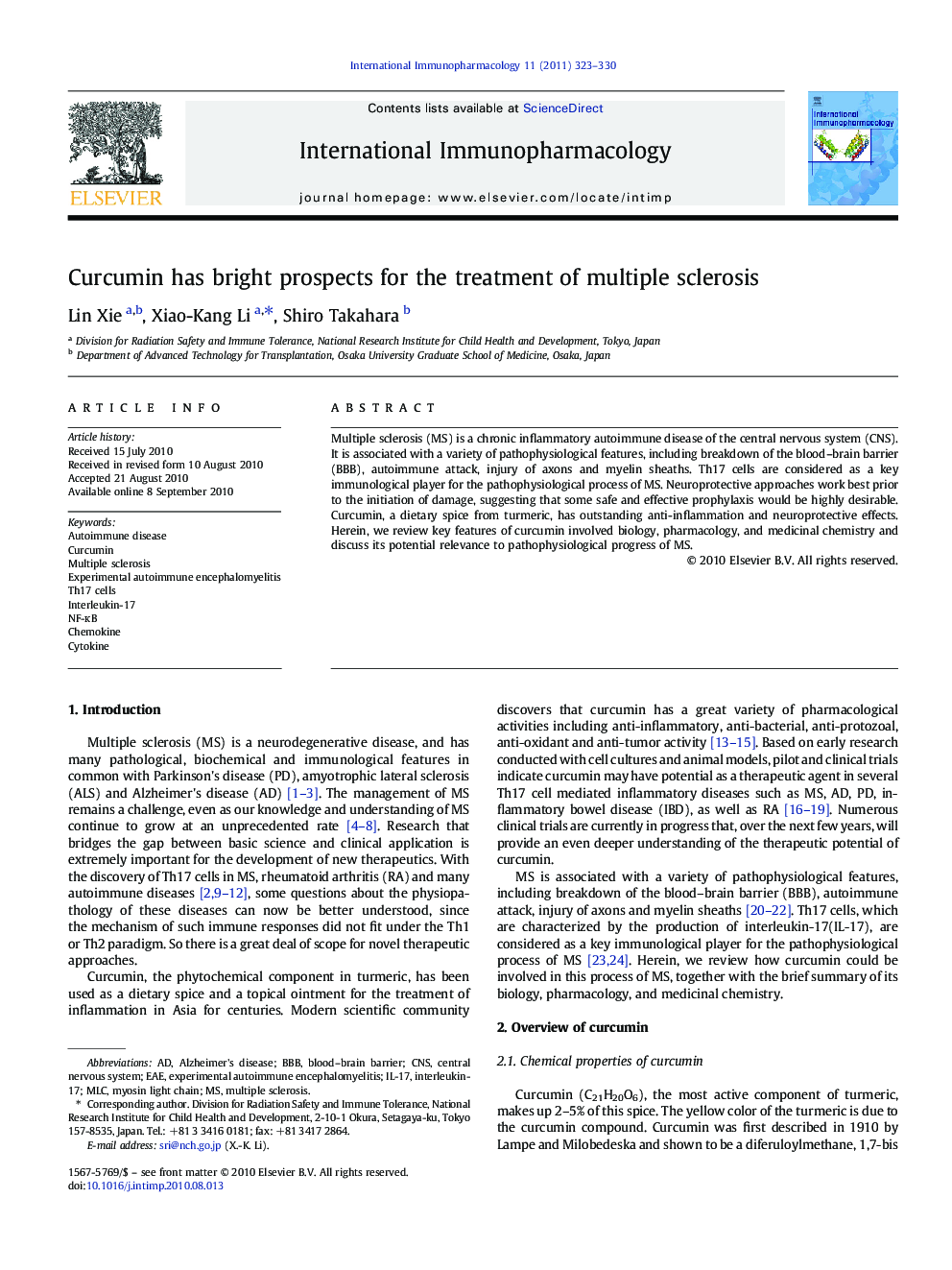| Article ID | Journal | Published Year | Pages | File Type |
|---|---|---|---|---|
| 2541088 | International Immunopharmacology | 2011 | 8 Pages |
Multiple sclerosis (MS) is a chronic inflammatory autoimmune disease of the central nervous system (CNS). It is associated with a variety of pathophysiological features, including breakdown of the blood–brain barrier (BBB), autoimmune attack, injury of axons and myelin sheaths. Th17 cells are considered as a key immunological player for the pathophysiological process of MS. Neuroprotective approaches work best prior to the initiation of damage, suggesting that some safe and effective prophylaxis would be highly desirable. Curcumin, a dietary spice from turmeric, has outstanding anti-inflammation and neuroprotective effects. Herein, we review key features of curcumin involved biology, pharmacology, and medicinal chemistry and discuss its potential relevance to pathophysiological progress of MS.
Research highlights► Th17 cells are considered as a key player for the pathophysiological process of MS. ► Curcumin inhibit neuroinflammation of MS. ► Curcumin effect on MS induced neurodegeneration.
